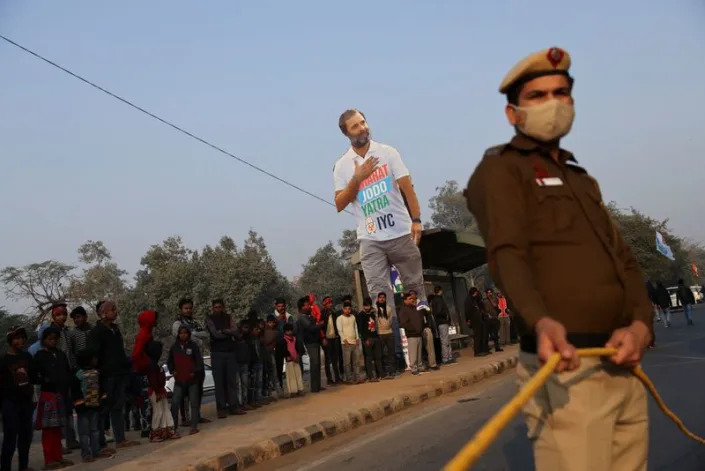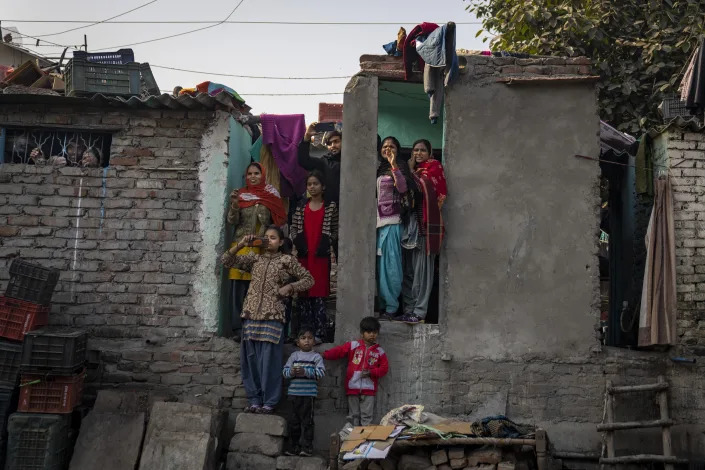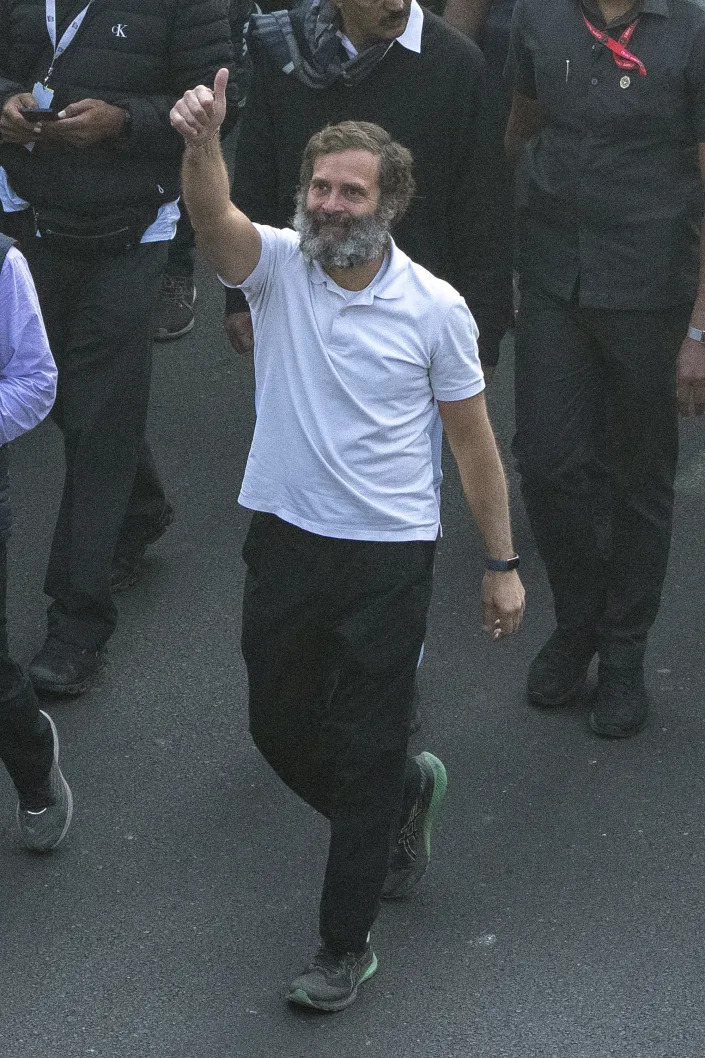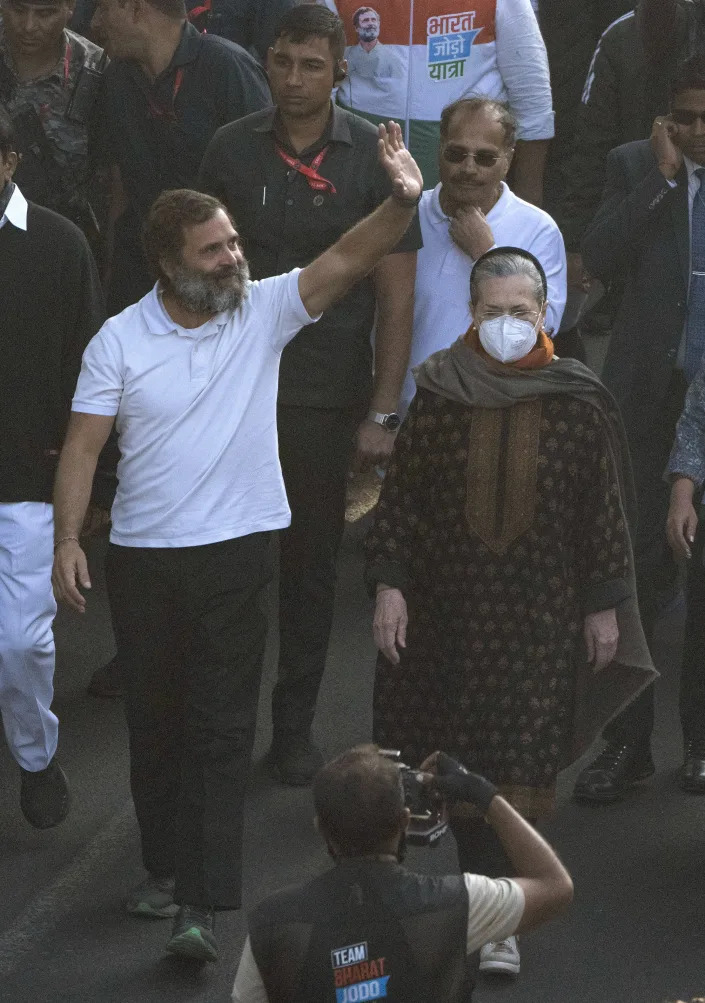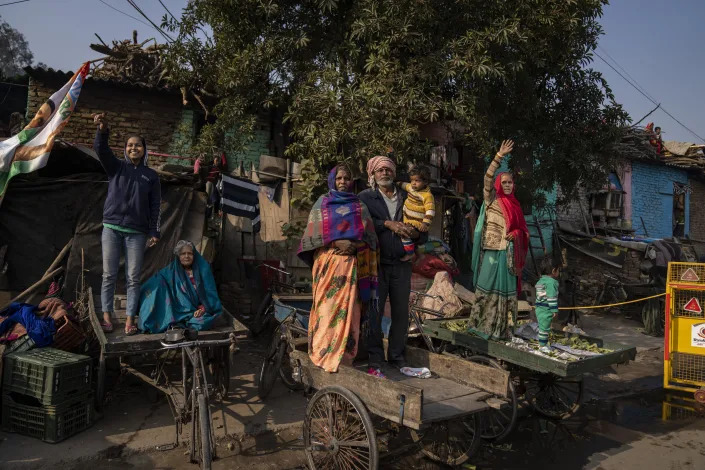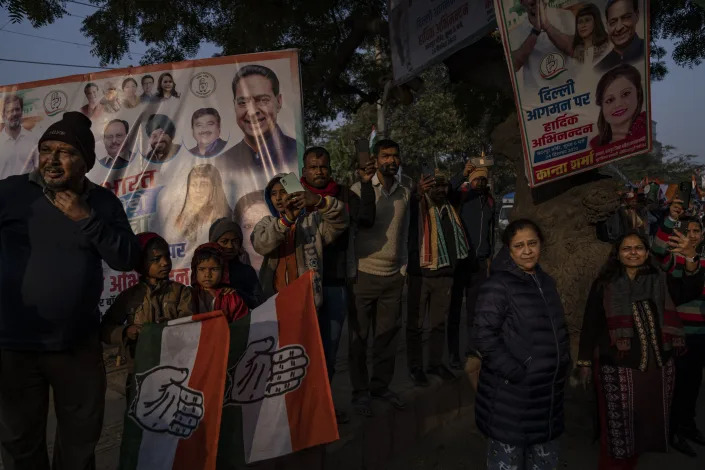Kentucky Lawmaker Speaks Out About Transgender Son's Suicide

Kentucky Senator Karen Berg, left, speaks with Sen. Morgan McGarvey during the last day of the state session at the Kentucky State Capitol in Frankfort, Ky., Tuesday, March 30, 2021. (AP Photo/Timothy D. Easley) (ASSOCIATED PRESS)
Remy Tumin
Sat, December 24, 2022 at 8:52 AM MST·6 min read
When Henry Berg-Brousseau appeared before Kentucky lawmakers at a hearing in 2015 about a proposed transgender bathroom bill, he closed his testimony with an introduction.
“If you don’t know a transgender kid already, you do now. You know me, Henry,” he said. “And I’d be honored to continue to work with you and help educate you on all trans issues. I’d be even more honored to call you all friends.”
Berg-Brousseau, who was 16 at the time, was urging members of the state Senate’s Education Committee to vote against a bill that would have required transgender students like him to use a unisex bathroom or a bathroom that corresponded with the gender on their birth certificate.
“When somebody tells us that we’re so different, that the only way to accommodate us is to create a special restroom, the message is clear with this bill: that we don’t belong,” Berg-Brousseau said during his testimony.
The bill was approved by the Kentucky state Senate but later failed in the House.
“We were trying to educate the community on what it meant to be a trans kid,” his mother, Karen Berg, said Friday. “He was a warrior. But years later, he told me that the person who had had the courage to do that was harder to find.”
Berg-Brousseau died by suicide Dec. 16. He was 24.
In a statement announcing his death last week, Berg, a Kentucky state senator and a radiologist, said that “this hate building across the country weighed on him” and implored people to “practice tolerance and grace.”
In an interview, Berg, a Democrat, said she had gone public about her son’s death because politicians and anti-LGBTQ groups need “to understand, on a personal level, or else it doesn’t change.”
“The goal is to make the world a better place,” she said. “That’s what Henry was trying to do; that’s what I’m trying to do — to make a space for these children.”
Berg-Brousseau made fighting for the rights of gay, transgender and nonbinary people his mission in life. He was an intern at the Fairness Campaign, an LGBTQ advocacy organization in his hometown, Louisville, Kentucky; became a founding member of a chapter of Delta Lambda Phi, an LGBTQ fraternity, at George Washington University; and landed what his friends described as his “dream job” right after college, as a deputy press secretary at the Human Rights Campaign, where he focused on political communication.
But the weight of his work became increasingly difficult for him to bear, Berg said. She had recently asked Berg-Brousseau if he wanted to step away from his job, but he said no. “Henry’s not a quitter,” his mother said.
Intimidation and violence against gay and transgender Americans has exploded in recent years, driven by an increasingly vitriolic political conversation. Just this year, members of the Proud Boys and other extremist groups have converged on drag events and participated in anti-LGBTQ rallies. Last month, five people were killed — two were transgender, a third was gay — in a shooting at an LGBTQ club in Colorado Springs, Colorado.
Across the country, Republican state lawmakers have focused attention on transgender people and other LGBTQ issues by introducing bills that aim to limit what doctors call gender-affirming care; restrict what students are taught in the classroom about gender and sexuality; bar some transgender students from participating in school sports; and require students to use restrooms for the gender listed on their original birth certificates.
The Human Rights Campaign said that 344 such bills were introduced across 23 states in 2022. More than 25 of those bills, a majority of which targeted transgender people, became law in 13 states. According to a national survey of nearly 34,000 LGBTQ youth conducted in late 2021 by the Trevor Project, a crisis intervention organization, in late 2021, nearly 1 in 5 transgender and nonbinary people between the ages of 13 and 24 had attempted suicide in the previous year.
Berg-Brousseau followed many of these data points and news headlines for his job.
“Not long ago he said to me, ‘Mom, they say it gets better, but it is not getting better, it is getting worse, and I’m scared,’” Berg said.
Even as Berg-Brousseau was finding a community for himself in and around Washington — at college through his fraternity and the Jewish group Hillel, an LGBTQ kickball league, and the Human Rights Campaign — it didn’t make that inside feeling of rejection go away, Berg said.
“He did find a place he belonged; I’m sure of it,” Berg said. “Even though it was there and he found it, at that point he was still a little broken inside from having to struggle and look for it so hard for so long.”
That was something Berg-Brousseau was trying to fix, both for himself and for others.
Luke Briggs, a college friend, described Berg-Brousseau as “a motivating force.”
“He was fighting at a young age so he could feel like he had a place in this world, so that other trans people could as well,” Briggs said.
Berg-Brousseau found joy in his friends, knitting, his mutt Bibi and, more recently, baseball. Briggs recalled being floored by Berg-Brousseau’s quick mastery of the sport and his rapid-fire commentary at Washington Nationals games.
“There were moments like this where he understood, in complex ways, that if he set his mind to it he really could understand how the world functions and how to reach and connect with people,” Briggs said.
That dedication carried over into his job. Delphine Luneau, Berg-Brousseau’s manager at the Human Rights Campaign, said Berg-Brousseau “believed in the work we do with every fiber of his being.”
Luneau, who is transgender, said there was a feeling of “facing that onslaught and putting ourselves in the path of hate that was coming for our community in the hopes that we could deflect some of that and protect the vulnerable.”
But that work came with hardship.
“You don’t get a day’s relief from the knowledge that there is an organized effort to demonize us, to drive us into dark corners, to tell us lies about us,” she said. “There is just no way to avoid it, and it takes a toll.”
Berg-Brousseau’s signature achievement in the past year was working behind the scenes to help Congress pass the Respect for Marriage Act, mandating federal recognition of same-sex marriages, Luneau said.
The pain and grief of Berg-Brousseau’s death will be with her for a while, Luneau said. But she said she was trying to focus on the “intensity of love” that has swelled in his absence.
“When you talk about someone this age, it is easy to talk about it in terms of the potential because of all the great things he could have achieved,” Luneau said. “But what he already achieved was so impressive. He packed so much life into 24 years. There are people who live 100 years and don’t make half the impact that he made.”
—
If you are having thoughts of suicide, call or text the National Suicide Prevention Lifeline at 988 or go to SpeakingOfSuicide.com/resources for a list of additional resources.
© 2022 The New York Times Company





